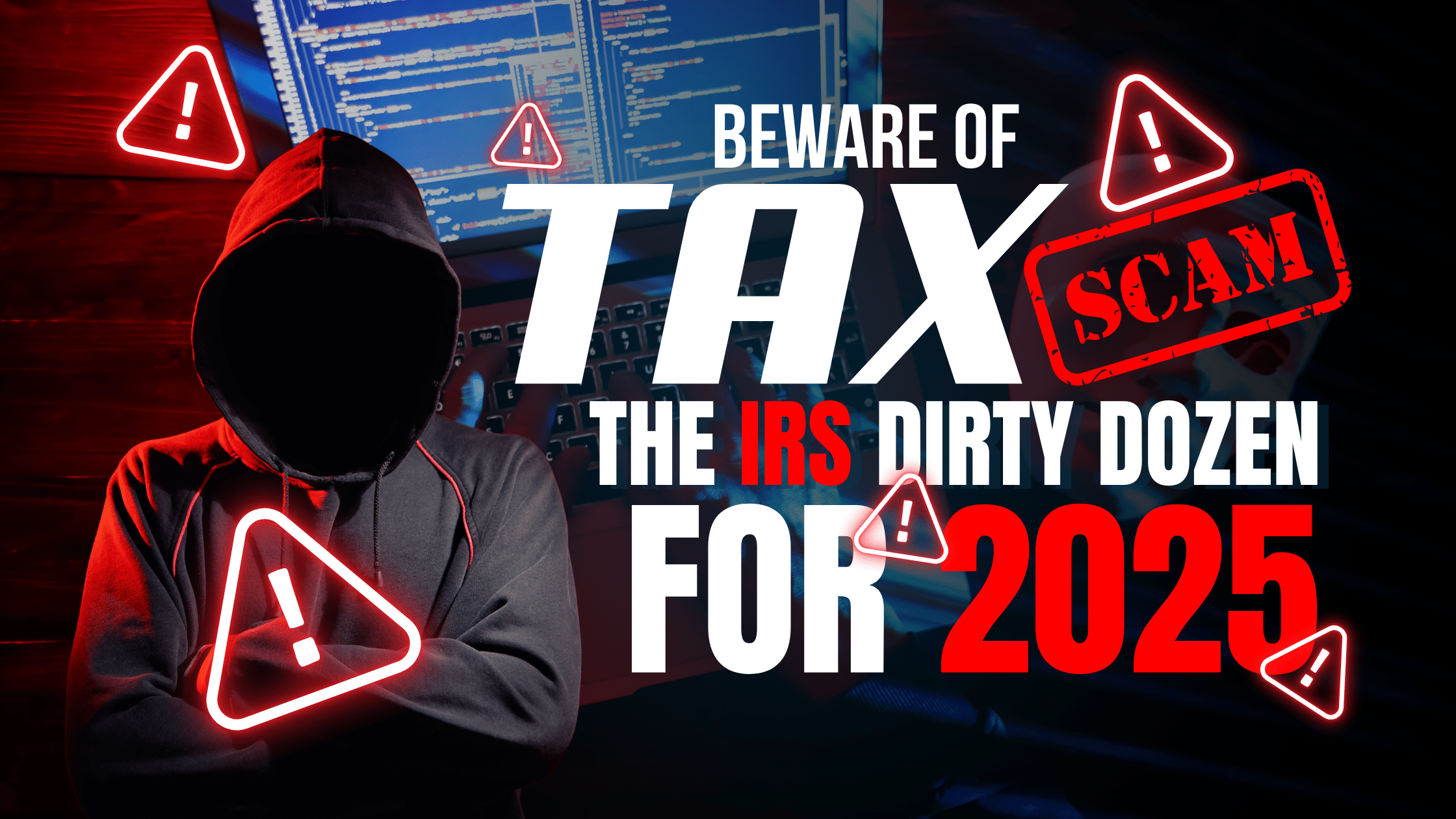Beware of Tax Scams: The IRS Dirty Dozen for 2025

Every year, tax season brings its fair share of headaches, but the IRS wants to make sure scammers aren’t one of them. Enter the Dirty Dozen—the IRS’s annual list of the most notorious tax scams designed to trick taxpayers and tax professionals alike. This year’s list, much like in years past, includes schemes that range from the familiar to the newly devious.
According to Terry Lemons, senior adviser for IRS communications, “Scammers are relentless, and they use the guise of tax season to try tricking taxpayers into falling into a variety of traps.” That’s putting it mildly—these scams can lead to stolen identities, fraudulent tax filings, and taxpayers claiming credits they’re not entitled to (which can mean big trouble later).
The Dirty Dozen campaign has been in place since 2002 to warn taxpayers about the latest frauds. Phishing scams have been on the list since at least 2010, and newer threats, like smishing (phishing via text message), made their debut more recently. This year’s 2025 list includes several old favorites with a few new twists. Here’s what’s making waves:
New Client Scams & Spear Phishing
Cybercriminals are getting more sophisticated in their tactics, posing as potential clients to lure tax professionals into a trap. A scammer might send an email pretending to be a new client in need of tax services. If the unsuspecting tax pro responds, they get hit with a malicious attachment or a fake link, compromising their system and exposing sensitive client data.
Spear phishing takes things up a notch—it’s a more targeted form of phishing aimed at a specific business or individual. These scams don’t just go after data; they can also steal a tax pro’s identity, making it easier for scammers to file fraudulent tax returns. A good red flag? Emails with awkward sentence structures and unusual word choices.
Phishing & Smishing Scams
If you’ve ever received a suspicious email claiming to be from the IRS, congratulations—you’ve been a target of phishing. These emails often dangle bait, like a fake tax refund or threats of legal action, hoping someone takes the hook.
Smishing is the text-message version of phishing, where scammers send urgent-sounding texts like, “Your account has been put on hold” or “Unusual activity detected.” The message will include a link promising to fix the issue—but clicking it can lead to malware or identity theft.
The Rest of the Dirty Dozen
Beyond phishing scams, here are the other schemes taxpayers should be on high alert for:
-
Ghost Tax Return Preparers: Shady preparers who refuse to sign the returns they prepare—often because they’re doing something fraudulent.
-
Bad Social Media Tax Advice: Viral posts leading taxpayers to claim bogus deductions or credits.
-
Scammers Offering IRS Online Account Help: Fake “helpers” who steal your information instead.
-
Fake Charities: Fraudulent organizations that collect “donations” but never help anyone but themselves.
-
False Fuel Tax Credit Claims: A credit most taxpayers don’t qualify for, but scammers try to convince them otherwise.
-
Credits for Sick or Family Leave: Another area where fraudulent claims are on the rise.
-
Bogus Self-Employment Tax Credit Claims: Scammers misleading gig workers into improper claims.
-
Improper Household Employment Tax Filings: Misuse of tax benefits related to household employees.
-
Overstated Withholding Claims: Inflating tax withholding amounts to manipulate refunds.
-
Misleading Offers in Compromise: False promises to settle tax debt for “pennies on the dollar” (when the IRS never agreed to it in the first place).

How to Stay Safe
The best way to avoid falling for these scams? Stay skeptical. The IRS doesn’t send unsolicited emails or texts, and any unexpected messages demanding immediate action should raise a red flag. If something seems off, double-check directly with the IRS or a trusted tax professional.
Scammers are getting craftier, but knowing the tricks they use can keep you—and your finances—out of harm’s way. Stay informed, stay cautious, and don’t let the fraudsters win this tax season!







